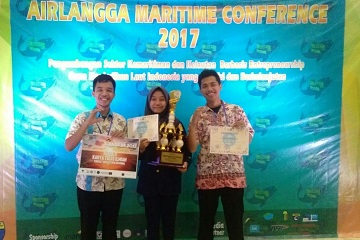A Group of IPB Students Promoting IMTA System for Indonesian Fisheries

Aquaculture is fastest-growing area of food production in the world. The rapid growth of intensive aquaculture for species with high commercial values has already caused dreadful environmental damage and the displacement of many local farmers and fishers whose livelihoods have been destroyed. Intensive fish farms release enormous quantities of organic waste (fecal material and unused feed) and contaminated water into the natural environment around the farm sites. This feed problems, among others, is the result of fish metabolism which if left unchecked will have a negative impact on the balance of the environment including the existing marine ecosystem. The application of sustainable aquaculture is urgently needed by breeding fish for commercial purposes in a manner such that it has a minimum impact on the environment, contributing to the development of local communities and generating economic benefits.
To respond such issues, a group of IPB students, namely Dwi Indah Lestari, M. Hidayatullah, and Ilham Labubal Banin of the Department of Aquaculture, of the Faculty of Fisheries and Marine Sciences of Bogor Agricultural University (FPIK IPB) offer a cultivation system that provide solutions for the future of aquaculture programs in Indonesia.
"We offer IMTA (Integrated Multi Trophic Aquaculture) application in aquaculture activities. Integrated multi-trophic aquaculture borrows a concept from nature; namely, that in the food chain, one species always finds a feeding niche in the waste generated by another species. The application of Integrated Multi-Trophic Aquaculture (IMTA) on the Stratified Double Floating Net Cage (SDFNC) integrated with biomonitoring are an appropriate solution to the on-going productive farming practices. IMTA is an aquaculture practice using more than one species of biotas which have ecologically mutual relationship as a part of the food chain in the area at the same time. The application of IMTA allows farmers to get several aquaculture products in the same area without increasing the horizontal area of the farms," said Dwi.
According to her, IMTA has been widely applied in foreign countries such as China and Canada. While in Indonesia the application of IMTA is still very few, it needs further socialization or promotion. Application of science and technology in the form SDFNC-IMTA is needed to implement intensive farming but still consider the carrying capacity of the environment.
Another advantage in IMTA system application is that it can reduce the resulting cultivation waste, increase profits, and can increase the growth of fish cultivation. Farmers combine fed aquaculture (e.g., fish, shrimp) with inorganic extractive (e.g., seaweed) and organic extractive (e.g., shellfish) aquaculture to create balanced systems for environment remediation (biomitigation), economic stability (improved output, lower cost, product diversification and risk reduction) and social acceptability (better management practices).
IMTA application was expressed in the scientific paper prepared by the three students IPB, and submitted it for the competition in Surabaya and won the third champion in the national scientific writing contest there. The competition was Ajang Karya Tulis Ilmiah (Scientific Writing Event 2017) which was shortened into Jangkar 2017. It was carried out by Executive Board of Students (BEM) of the Faculty of Fisheries and Marine of Airlangga University, on 16-18 November 2017. "It is really a fair competition, we compete with five other finalists from Universitas Brawijaya, Airlangga University, Padjadjaran University and Diponegoro University," explained Ilham.
Dwi and the team expected that IMTA application can be implemented for the an appropriate solution to the on-going productive farming practices. The application of biomonitoring in aquaculture activities is an important step to ensure that farming activity still observed that anticipatory measures against the risk of interference can be reduced and anticipated environment. (Wied)


